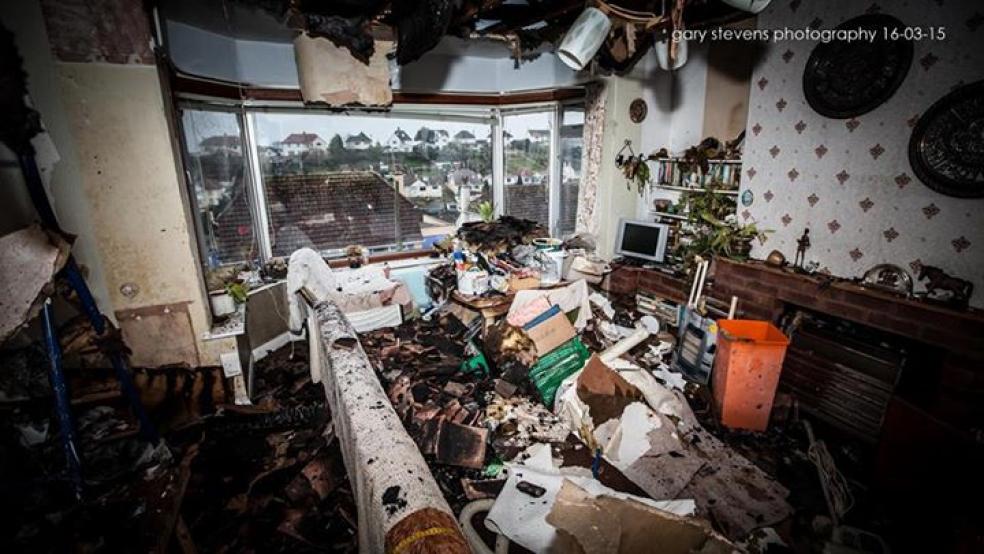
Thousands risk death from electrical fires at home
Older people in the UK are disproportionately at risk from electrical hazards, according to research by leading charity, Electrical Safety First.
The Charity has found that a person over 60 is ten times more likely to die in a fire than somebody aged 17 to 24i. And more than half of the accidental fire-related deaths last year in Great Britain were people aged 65 and olderii.
“Half of all accidental electrical fires are caused by misuse, so they are preventable,” said Phil Buckle, Director-General of Electrical Safety First. “
Elsie Van der Steen, 85, was left with just her cat Pipsy, a chicken, and the clothes on her back after an electrical fire tore through her Devon home in March 2015. The fire was caused by a portable heater that had been plugged into an extension lead, overloading the socket. After hearing about the tragic incident, Elsie’s neighbour Deborah Johnson led a community campaign that has so far raised nearly £9,000 to rebuild her home.
Although this is a heart-warming example of how a local community has come together to help an older person stay in her home, it also serves as a warning of the consequences of outdated or misuse of electrics. Elsie’s story is not an isolated incident. In four years, nearly 4,200 people aged over 65 in England were injured from electrical fires in the home.
“Elsie was lucky to survive, but she lost nearly everything just because of an overloaded socket,” Deborah said. “Our wonderful community has rallied together to make things right for her, but it’s a situation that could have been easily avoided if she and more people knew the dangers of electrics in their homes.”
Phil added, “With colder months ahead and a dependency on portable heating devices, we encourage people to check in on their older friends and relatives, and look around for potential safety risks and act to prevent electrical fires and the distress that they can cause. People are living healthier and longer lives at home and we do not want them to risk preventable injury or death through electrical accidents”.
Andy Reynolds, lead officer for Electrical Fire Safety for the Chief Fire Officers Association (CFOA), said: “Electrical accidents can devastate lives and still account for too many accidental fires across the UK. I would urge people who are visiting older people to take the time to check sockets aren’t overloaded and to raise any concerns they may have with the householder so we can try to reduce the number of needless fires, while helping to keep people safer in their homes. Older people are at a higher risk and a few simple checks by friends and family could help to ensure we see fewer cases like this, which cause high levels of distress for those people involved. It could be just taking a few moments to check sockets and wires and cords are in good condition, while pointing out any issues to householders so together you can get any issues rectified before it becomes a problem.”
Electrical Safety First wishes to arm older people and their relatives or neighbours with the knowledge to spot potential risks and advice on what to do if something does go wrong.
For more information and resources for anybody concerned about electrical safety in the home of an older person, visit www.electricalsafetyfirst.org.uk/agesafe












